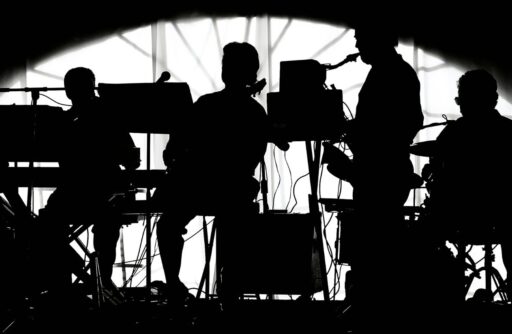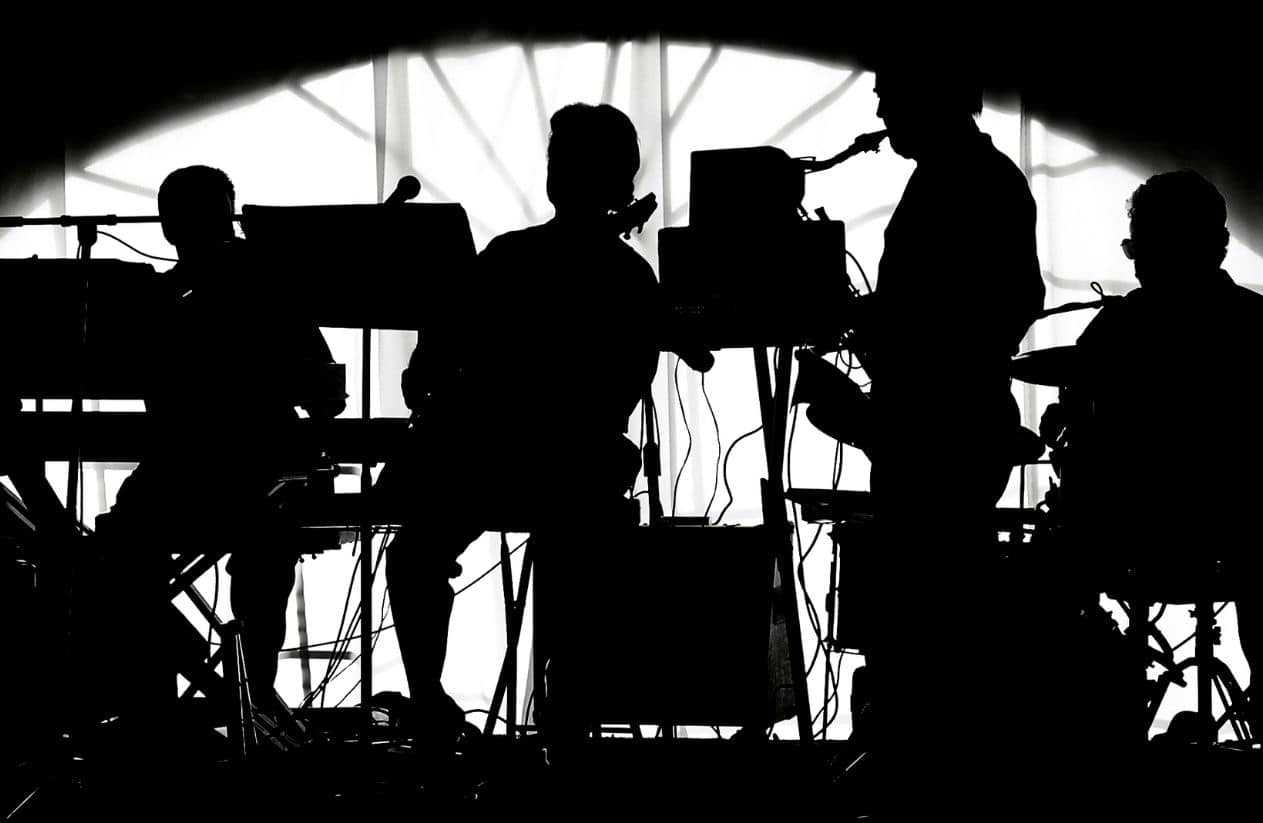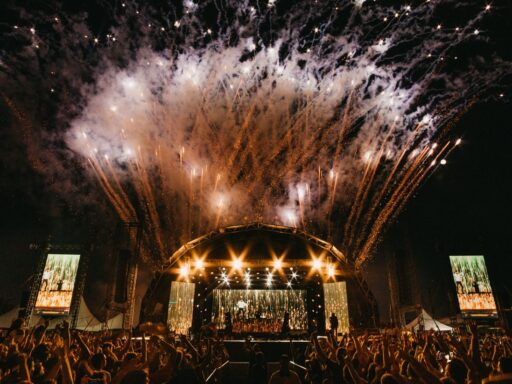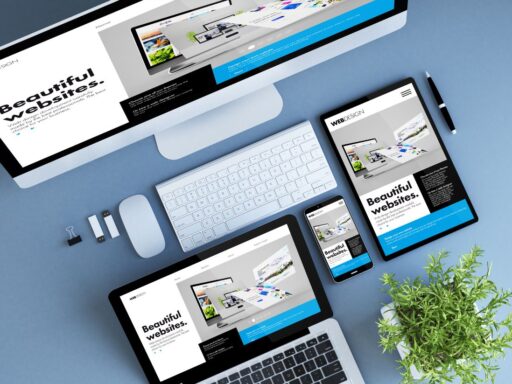Imagine the palpable buzz of anticipation electrifying your event space as the lights begin to dim, every eye in the room drawn towards the promise of captivating entertainment.
Yet, the journey to that perfect moment often involves navigating a labyrinth of options and potential pitfalls in booking entertainment for events. Overwhelming choices, budget constraints that loom large, and the critical need to ensure top-notch quality can leave even seasoned planners feeling daunted.
Consider this your definitive backstage pass, an ultimate guide meticulously crafted to demystify this intricate process.
We’ll arm you with invaluable insider tips, reveal savvy cost-saving strategies, and provide a crystal-clear roadmap, empowering you to confidently secure the ideal entertainment that aligns perfectly with your vision.
From gaining a deep understanding of the dynamic entertainment landscape and mastering the art of negotiation to the essential steps for guaranteeing a flawless performance, prepare to transform your event from simply memorable into an absolutely unforgettable experience for every attendee.
Understanding the Entertainment Landscape: Laying the Foundation for Success

To effectively navigate the process of booking entertainment, it’s crucial to first develop a comprehensive understanding of the diverse entertainment landscape and the factors that influence successful bookings.
The Diverse World of Entertainment: Exploring Your Options
The realm of event entertainment is incredibly varied, offering a wealth of options to suit any occasion and audience. Consider the broad categories available:
- Live Bands: Offering a dynamic and energetic atmosphere, bands can range from high-energy rock and pop groups to sophisticated jazz ensembles and themed tribute acts.
- DJs: Providing seamless musical transitions and the ability to cater to diverse tastes, DJs are a popular choice for parties, corporate events, and weddings.
- Comedians: Bringing laughter and lightheartedness, comedians can range from stand-up performers to improvisational troupes.
- Magicians: Adding an element of wonder and intrigue, magicians can perform close-up illusions or large-scale stage shows.
- Dancers: From elegant ballet performances to high-energy contemporary dance groups, dancers can add visual appeal and artistic flair.
- Specialty Acts: This broad category includes unique performers such as acrobats, fire dancers, caricaturists, mentalists, and interactive entertainers, offering distinctive experiences.
Understanding these different categories and their typical suitability for various event types is fundamental to making informed decisions. A formal corporate gala might benefit from a classical string quartet, while a casual outdoor festival would likely be better suited to a lively cover band.
Identifying Current Entertainment Trends That Resonate with Your Audience
Staying informed about current entertainment trends is vital for creating an event that feels fresh, relevant, and engaging. This requires a proactive approach to research:
- Social Media Analysis: Platforms like TikTok, Instagram, and YouTube are often epicenters for emerging musical trends, viral dance challenges, and popular performance styles. Monitoring trending sounds, hashtags, and influential creators can provide valuable insights.
- Industry Publications and Charts: Reputable music industry magazines, online publications, and music charts offer data-driven perspectives on popular genres, rising artists, and overall entertainment consumption patterns.
- Industry Events and Showcases: Attending industry conferences, showcases, and even virtual events provides opportunities to witness a variety of acts firsthand and network with professionals who have their finger on the pulse of current trends.
- Networking with Peers: Engaging with other event planners, venue managers, and entertainment professionals can yield valuable anecdotal information and firsthand accounts of what’s currently proving successful.
Understanding these trends allows you to select entertainment that not only aligns with your event’s theme and audience demographics but also has the potential to generate excitement and create a memorable experience.
Looking to book Entertainment for an event? We got you, below is the list of our recommended Entertainers that you can hire or book for the event:
You can also read our article “Guide to Booking Top Edmonton DJs for Your Event”

Booking platforms have emerged as powerful tools in the entertainment industry, streamlining the process of connecting event organizers with a diverse pool of talent.
Understanding how to book entertainment for events effectively through these platforms, whether you are an organizer or a performer, requires a strategic approach.
For Event Organizers: Leveraging Platforms for Efficient Talent Discovery
Booking platforms offer several advantages for event organizers, including a centralized database of performers, simplified search functionalities, and often integrated communication and contracting tools. However, it’s essential to weigh these benefits against potential drawbacks compared to direct engagement with artists or their representatives.
Pros of Using Booking Platforms:
- Wide Selection: Access to a vast and diverse range of entertainers across various genres and price points.
- Efficiency: Streamlined search and filtering options based on event type, location, budget, and style.
- Transparency: Often includes artist profiles with media, reviews, and pricing information.
- Simplified Communication: Integrated messaging systems for direct interaction with performers.
- Contract Management: Some platforms offer tools for creating and managing contracts and payments.
Cons of Using Booking Platforms:
- Platform Fees: Many platforms charge commission fees to either the organizer or the performer, increasing the overall cost.
- Limited Direct Relationship: Less opportunity for building a personal connection with the artist before booking.
- Potential for Misrepresentation: While platforms often have vetting processes, the accuracy of profiles can vary.
- Dependence on Algorithms: Search results may be influenced by platform algorithms that prioritize certain profiles.
Tips for Effective Platform Usage:
- Utilize Specific Keywords and Categories: Employ precise search terms related to the desired genre, style, and any unique requirements (e.g., “acoustic folk band Vancouver,” “interactive children’s magician”).
- Critically Review Artist Profiles: Go beyond the initial photos and videos. Carefully examine the biography, paying attention to experience, repertoire, and any unique selling points. Scrutinize reviews and ratings from previous clients for genuine feedback.
- Understand Platform Fees and Contract Terms: Be fully aware of any commission structures, payment schedules, cancellation policies, and standard contract templates offered by the platform.
- Conduct Due Diligence Beyond the Platform: While platform reviews are helpful, seek external validation. Check the artist’s website, social media presence, and look for independent reviews or testimonials. Consider asking for references from past clients not listed on the platform.
Related Content: Effective Communication Tips for Booking Live Performers
For Musicians, DJs, and Entertainers: Maximizing Your Platform Presence
For performers, booking platforms offer a valuable avenue to reach a wider audience of event organizers and secure more gigs.
To stand out in a crowded marketplace, strategic profile optimization and platform engagement are crucial.
Optimizing Your Profile for Visibility:
- High-Quality Visuals: Invest in professional, high-resolution photos and videos that accurately represent your act and showcase your performance style.
- Compelling and Keyword-Rich Biography: Craft a well-written bio that highlights your experience, unique talents, past achievements, and the specific value you bring to events. Incorporate relevant keywords that event organizers might use in their searches (e.g., your genre, instruments played, types of events you specialize in).
- Actively Solicit and Showcase Positive Reviews: Encourage satisfied clients to leave detailed and positive reviews on your profile. Testimonials act as powerful social proof and can significantly influence booking decisions.
- Keep Your Profile Updated: Regularly refresh your profile with recent achievements, updated media, new repertoire, and any changes to your availability or pricing.
Understanding Algorithms and Enhancing Visibility:
- Responsiveness: Promptly respond to inquiries from event organizers. Quick and professional communication signals reliability.
- Activity: Regularly log in to the platform, update your calendar, and actively browse for potential opportunities.
- Completeness: Ensure every section of your profile is filled out thoroughly and accurately. Platforms often prioritize complete profiles in their search results.
Leveraging Networking Opportunities:
- Engage with Event Organizers: Respond thoughtfully to inquiries and demonstrate a genuine interest in their event.
- Connect with Fellow Artists: Networking with other performers on the platform can lead to collaborations or referrals.
- Utilize Platform Forums or Groups: Participate in community discussions to increase your visibility and build relationships.
By adopting a strategic approach to navigating booking platforms, both event organizers and performers can leverage these tools effectively to streamline the booking process and foster successful entertainment engagements.
Crafting Your Pitch: Making a Lasting Impression on Event Organizers

In the competitive landscape of event entertainment, a well-crafted pitch is your key to standing out and securing bookings. When booking entertainment for events, a generic approach simply won’t cut it.
Your pitch needs to be a compelling narrative that immediately captures the event organizer’s attention and clearly articulates the value you bring to their specific occasion.
The Anatomy of a Winning Pitch: Tailoring Your Message for Maximum Impact
Personalization is paramount. Avoid sending out blanket emails; instead, tailor each pitch to the specific event you’re targeting. Demonstrate that you’ve taken the time to understand their vision and audience. A winning pitch typically includes these essential elements:
- A Clear and Engaging Subject Line: Make it concise and attention-grabbing, hinting at the value you offer and referencing the event if possible (e.g., “Unique Jazz Trio for Your [Event Name]” or “Elevate Your Gala with [Your Act Name]”).
- A Concise and Compelling Introduction: Briefly introduce yourself or your act, highlighting your core offering and relevant experience that aligns with the event’s nature. Get straight to the point and showcase your professionalism.
- Directly Addressing the Event’s Theme and Audience: Explicitly mention how your performance style, repertoire, or unique skills directly complement the event’s theme, target demographic, and overall objectives. This shows you’ve done your homework and are genuinely interested in contributing to their success.
- Highlighting Your Unique Selling Points and Added Value: Clearly articulate what makes you different and why an event organizer should choose you over other options. This could be your specific genre expertise, interactive performance style, ability to customize your setlist, or any unique elements that set you apart. Quantify your impact whenever possible (e.g., “increased audience engagement by X% at previous events”).
- Including High-Quality Media: Provide easily accessible links to professional videos and audio samples that showcase your talent and performance quality. Ensure these media are recent and accurately reflect your current act.
- Providing Clear Pricing and Availability (or Openness to Discussion): Clearly state your standard pricing for similar events or indicate your willingness to discuss a tailored package based on their specific needs and budget. Transparency at this stage can expedite the process.
- A Professional Call to Action: End with a clear and concise call to action, such as “I’d love to discuss how [Your Act Name] can elevate your [Event Name]. Are you available for a brief call next week?” or “Please find my full press kit and references attached. I look forward to hearing from you.”
Show, Don’t Just Tell: Demonstrating Tangible Value
Instead of simply stating your qualifications, demonstrate your value through concrete examples.
- Showcase Uniqueness: If you offer a specific repertoire (e.g., vintage swing covers, original instrumental pieces), highlight its appeal to the target audience. If your act involves interactive elements (e.g., audience participation segments, live polls during a DJ set), describe how these enhance engagement. If you tailor your performance based on audience feedback in real-time, explain the dynamic experience this creates.
- Leverage Social Proof: Include brief testimonials from satisfied past clients, particularly those whose events were similar in nature to the one you’re pitching for. Mention any notable past performances, press mentions, or awards you’ve received to build credibility.
Following Up Professionally: Nurturing Potential Bookings
Professional and timely follow-up is crucial, but avoid being overly persistent.
- Timely Acknowledgment: If you receive a response, reply promptly and professionally.
- Gentle Reminders: If you don’t hear back within a reasonable timeframe (typically a week), send a polite follow-up email referencing your initial pitch. Reiterate your interest and briefly highlight a key aspect of your offering that aligns with their event.
- Respect Their Decision: If they decline, thank them for their time and consideration. Maintaining a positive attitude can leave a lasting positive impression for future opportunities.
By mastering the art of crafting a personalized, compelling, and professional pitch, you significantly increase your chances of making a lasting impression on event organizers and securing the bookings you desire.
Negotiation Tactics for Securing the Best Deal: A Win-Win Approach

Successfully booking entertainment often hinges on your ability to navigate the negotiation process effectively.
The goal isn’t just to get the lowest price, but to establish a mutually beneficial agreement that respects the value of the entertainment while aligning with the event’s budget and objectives.
Knowing Your Worth (and Doing Your Research)
Before entering any negotiation, it’s crucial to have a clear understanding of your own value or the value of the entertainment you are seeking. For performers, this involves assessing your experience, current demand, unique skills, and the typical scope of your performances.
For event organizers, it means understanding the budget allocated for entertainment and the potential return on investment for different types of acts.
- Researching Comparable Rates: Both parties should conduct thorough research into the prevailing rates for similar types of entertainment in the relevant niche and geographic location. Performers can consult industry databases, network with peers, and analyze past booking fees. Event organizers can solicit quotes from multiple acts and consult with other event planners to establish a realistic budget range.
Beyond the Fee: Negotiating Additional Perks and Value
The monetary fee is just one component of the overall deal. Both organizers and performers should be aware of other negotiable aspects that can add significant value:
- For Performers: Consider negotiating for accommodation, travel expenses (especially for out-of-town gigs), provision of necessary equipment (sound, lighting), marketing support from the event organizer (promotion on social media, inclusion in event materials), and the possibility of future booking opportunities or referrals.
- For Event Organizers: Explore options like extended performance times for a slightly higher fee, the inclusion of additional performers or sets, or leveraging the entertainer’s social media reach to promote the event.
The Power of Flexibility and Creative Solutions
Sometimes, the key to a successful negotiation lies in demonstrating flexibility and exploring creative solutions.
- For Performers: Being open to slightly adjusting set times, offering different performance packages, or tailoring your repertoire to better suit the event’s specific needs can make your offer more attractive.
- For Event Organizers: If the ideal act is slightly outside your initial budget, consider exploring alternative dates, slightly shorter performance durations, or offering in-kind benefits to bridge the gap.
Crucially, ensure that all agreed-upon terms, including fees, performance duration, technical requirements, and any additional perks, are clearly documented in a written contract signed by both parties. This protects everyone and minimizes the potential for misunderstandings down the line.
Building Long-Term Relationships Through Fair Negotiation
Approaching negotiations with a mindset of fairness and mutual respect is essential for fostering positive long-term relationships. For performers, a reputation for being professional and reasonable can lead to repeat bookings and valuable referrals.
For event organizers, treating entertainers fairly ensures access to quality talent for future events. Even if an agreement isn’t reached for a particular event, leaving the negotiation on good terms can open doors for collaboration in the future.
Post-Booking Essentials: Setting the Stage for a Flawless Performance

Once the contract is signed and the entertainment is officially booked, the focus shifts to meticulous preparation to ensure a seamless and successful performance.
This stage is critical for both event organizers and performers to guarantee a positive experience for everyone involved.
Detailed Communication is Key to a Smooth Event
Establishing clear and comprehensive communication channels in the lead-up to the event is paramount. Event organizers should proactively engage with the booked entertainment to address all logistical and technical aspects. Key elements of pre-event communication include:
- Technical Riders: Performers will typically provide a technical rider outlining their specific requirements for stage setup, sound equipment, lighting, power, and any other technical needs. Event organizers must carefully review this document and confirm their ability to meet these requirements or discuss any necessary adjustments well in advance.
- Hospitality Riders: These riders detail the performer’s needs regarding dressing rooms, refreshments, meals, and any other hospitality arrangements. Ensuring these needs are met contributes to the performer’s comfort and overall experience.
- Run-of-Show and Timings: A detailed schedule for the event day, including load-in times, sound checks, performance times, breaks, and load-out, must be clearly communicated and agreed upon by both parties. This ensures everyone is on the same page and the event flows smoothly.
- Emergency Contact Information: Exchanging reliable emergency contact information for both the event organizers and the performers is crucial for addressing any unforeseen issues that may arise.
It is essential to confirm all these details in writing, whether through email confirmations or amendments to the original contract. This documentation serves as a reference point and helps prevent misunderstandings or last-minute surprises.
Preparation and Rehearsal: Honing Your Craft for the Event
For performers, thorough preparation and rehearsal tailored to the specific event are non-negotiable. This ensures a polished and professional performance that meets the event organizer’s expectations and delights the audience.
Arriving early for setup and sound checks is equally important, allowing ample time to address any technical issues and ensure optimal sound quality before the performance begins.
Professionalism On and Off Stage: Leaving a Lasting Positive Impression
Professionalism extends beyond the performance itself. For performers, punctuality, clear and respectful communication with the event organizers and venue staff, and a positive demeanor contribute significantly to their reputation and can lead to future bookings.
Similarly, event organizers who are organized, communicative, and respectful of the performers’ needs foster positive relationships within the industry.
A thoughtful post-event follow-up, including thank-you notes from both parties, reinforces the positive collaboration and leaves a lasting impression.
Conclusion
Mastering the art of booking entertainment for events is a multifaceted endeavor, requiring a blend of strategic planning, insightful research, effective communication, and skillful negotiation.
By understanding the diverse entertainment landscape, leveraging booking platforms wisely, crafting compelling pitches, and prioritizing clear post-booking communication, you can navigate this process with confidence.
Remember that the right entertainment has the power to elevate an event from ordinary to extraordinary, creating lasting memories for attendees. Embrace the journey, share your experiences, and don’t hesitate to seek further insights as you strive to curate exceptional entertainment that perfectly aligns with your vision and leaves a lasting positive impact.
With careful consideration and a proactive approach, you can unlock the perfect performance and transform your events into unforgettable successes.






